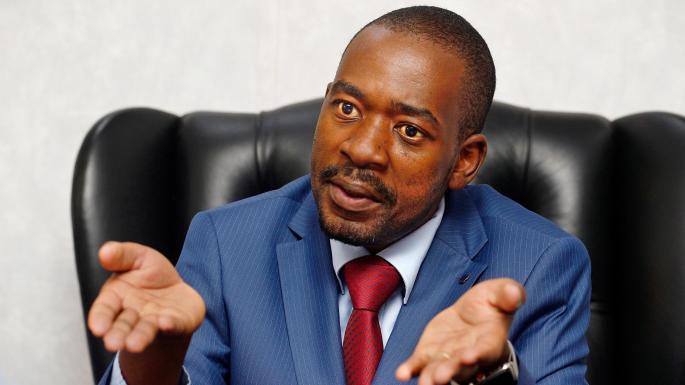Zimbabwe’s opposition leader, Nelson Chamisa is facing arrest over claims he incited the violence that erupted after the July 31 presidential election.
Police in the country have said that Mr. Chamisa is close to being arrested for inciting the violence that led to some deaths.
Six people were killed when opposition protesters clashed with soldiers shortly after the general elections.
The soldiers reportedly shot into the protesters resulting in deaths that were condemned globally. They were agitating over the election results claiming that their candidate, Nelson Chamisa had won instead.
Zimbabwe President Emmerson Mnangagwa set up a commission of inquiry to look into the country’s post-election killings.
Army denies role in the violence
The leadership of the Zimbabwe military has rejected claims its soldiers killed civilians during a post-election violence.
Senior army officials told the commission of inquiry that its soldiers did not kill civilians during protests in the capital, Harare.
Zimbabwe Defence Forces Commander General Philip Valerio Sibanda is quoted as telling the commission that “I do not believe that any of the soldiers fired. Yes, they fired in the air, but I do not believe any could have aimed shots at the civilians. I have no reason to believe that one of the soldiers could have shot and killed those people.”
Following the testimony from the army, a police official, Edmore Runganga reportedly told the commission that the police were now close to arresting Chamisa.
“We have not made any arrests of people who were inciting violence prior to the elections because we are investigating to try and have concrete evidence on how they incited the violence.
Once the investigations are complete, they will definitely be charged for inciting violence, as defined by section 187, as read with section 36 and 37 of the Code,” Runganga said.
The seven-member commission of inquiry was headed by former South African President Kgalema Motlanthe.
The commission was given three months to look into the reasons behind the protests and the role of the military in the killings.
Source: Africafeeds.com


